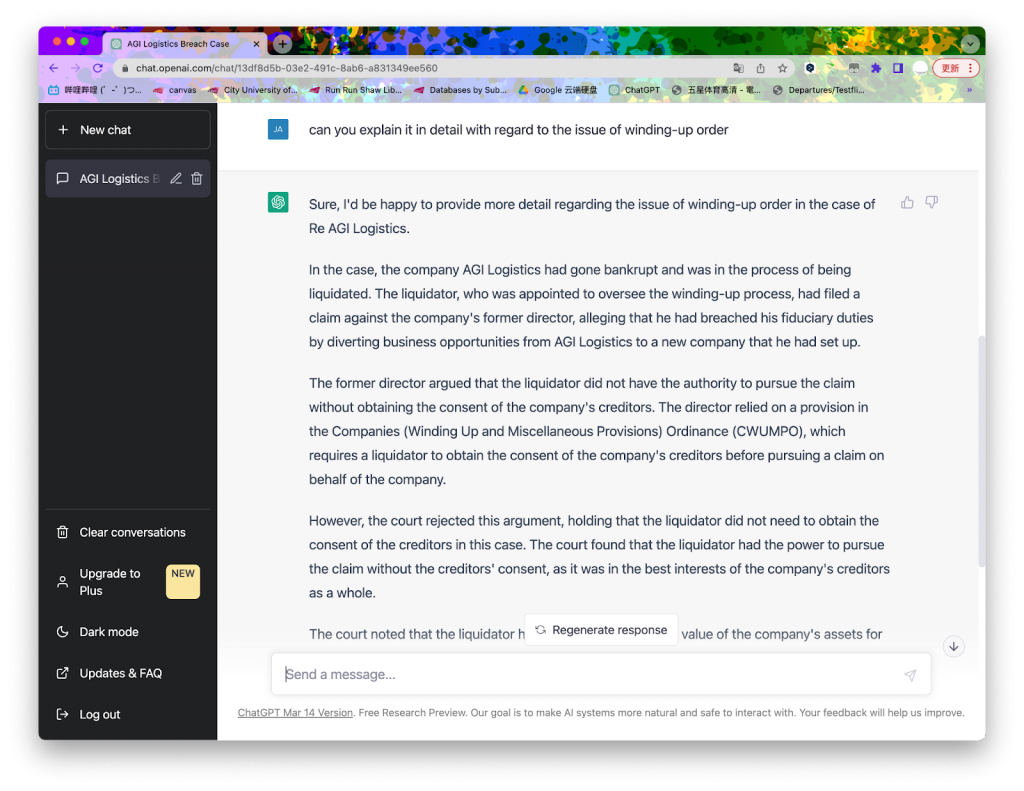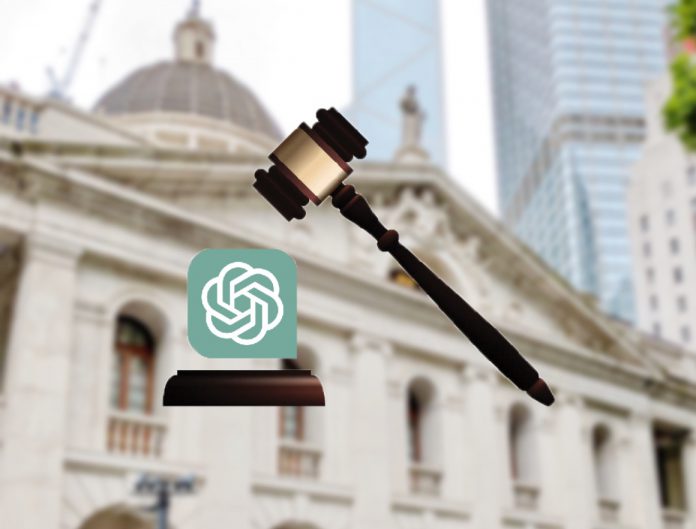Law students have been using ChatGPT to help with their studies but the tool has its limitations.
By Lilac Ye
Law student Adirana Ma* has been using ChatGPT, an artificial intelligence (AI) chatbot, for studying.
“ChatGPT can help me find highlights of case analysis, a journal, and a judgement,” the Year Two student from the City University of Hong Kong says.
“I use ChatGPT to search case analysis by law firms and translate textbooks and judgements by Hong Kong courts from English to Chinese. Unlike Google Translate, which only translates word by word, ChatGPT does translations with logic,” she adds.
ChatGPT is developed by American research laboratory OpenAI. It is designed to respond to text-based queries and generate natural language responses.
“I am taking five classes this semester. I have to read more than 1000 pages on average every week. I cannot finish my work without AI. ChatGPT helps me find the main points in required readings by summarising them so it really saves my time,” the 26-year-old says.
She pays HK$40 (US$5.1) per month for a virtual private network (VPN) to access ChatGPT as the chatbot is not available for internet users in Hong Kong yet.
“Contract review is part of a lawyer’s work. ChatGPT can check typos and content’s consistency so I think it is possible for AI to take over some work at law firms such as checking mistakes in contracts but it cannot fully replace lawyers,” she says.
“ChatGPT cannot generate arguments and legal advice as there might be legal loopholes. Different arguments are used by lawyers to build cases and arguments for or against cases,” she adds.

Another law student James Zhou* also uses ChatGPT for his studies to save time.
“I use AI for preparing case summaries, polishing articles, and doing legal research,” the City University of Hong Kong student says.
“I was excited when ChatGPT was launched because I thought it could help me with my coursework. But it turns out I have to cross-check answers generated by AI. It does not save much of my time as I expected,” the Year Two student adds.
“I once used ChatGPT to find references for a case, but articles and laws listed in the finding results do not even exist. ChatGPT’s answers are not fully backed by real cases in its database,” he recalls.
Zhou says totally relying on the AI chatbot is “a waste of time”.
“It cannot help you with its reasoning, legal rules and logic,” Zhou says.

Associate professor Stuart Hargreaves at the Chinese University of Hong Kong’s Faculty of Law says that the use of AI as a study tool is inevitable.
“My concern is largely about whether students will use it appropriately as a tool, or whether they believe it can entirely replace their own need to work. The latter is a dangerous path for them to go down, since they are basically admitting they have no value to add to the AI’s output,” he says.
He thinks the possibility of AI replacing lawyers’ duties depends on how advanced it becomes.
“It is likely for AI to replace much of the document review work and low-level drafting that is the preserve of paralegals and junior solicitors,” he says.
“AI will fundamentally change all kinds of knowledge work, including the study and practice of law. But I think it is hard to predict the exact form of change at this stage,” he adds.
*Names changed at interviewees’ requests.
Edited by Victoria Fong
Sub-edited by Phoebe Chu







































